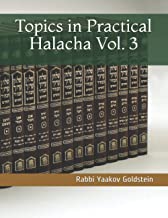*As an Amazon Associate I earn from qualifying purchases.
The confidentiality of a conversation:[1]
A conversation between two people is considered confidential and neither party may reveal its details to others until one is explicitly told by the other person that he may reveal it.[2] [This applies even though the other person did not explicitly say to keep the conversation private.[3] This applies even if telling over the conversation to others does not transgress the prohibition of saying Lashon Hara or Rechilus, and will not bring any foreseeable damage to the other.[4] Some Poskim[5], however, explain that this only applies if it is recognizable that the conversation is meant to remain confidential, such as that the conversation took place in private quarters or that the content is clearly one meant to be kept private. Thus, if the conversation took place in public, with more than three people present, there is no restriction against telling it over to others so long as it does not involve Lashon Hara or Rechilus.[6]]
| Q&A Secretly taping a conversation: Based on the above, one may not record another’s conversation for the purpose of sharing it with others. However, conversations may be secretly taped for legal purposes to protect the honesty and integrity of an agreement and enforce them if necessary before a Rabbinical tribunal. Under no conditions, however, may they be released to the public. Those who secretly tape conversations and then release them to the public on the internet or through social media transgress several Biblical prohibitions, including Lashon Hara, Rechilus, and making Machlokes. May one who received a letter or email from an individual reveal to others what was written?[7] One who received a private letter or email from an individual is prohibited from sharing it with others, unless he receives explicit permission from the sender. Accordingly, that which people are accustomed to forward private emails or messages to other acquaintances, may only be done if one has explicit permission from the sender. |
[1] Admur 156:14; M”A 156; Semag Lavin 9; Hagahos Maimanis end of Hilchos Deios; Yuma 4b; Chikikeiy Lev Y.D. 49; Omitted in Rambam; See Sefer Chofetz Chaim in Beir Mayim Chaim 2:27
[2] The source and reason: As the verse states “Vayidaber Hashem Eilav Beohel Moed Leimor.” [Yuma ibid] The word Leimor is coming to say “Lo Emor” that one should not reveal it. [Rashi ibid] Others explain that from the fact Hashem had to say “Leimor” which means “go say” we learn that under normal circumstances, one may not say. [Meiri and Ritva on Yuma ibid; Maharsha in Chidushei Agados Yuma ibid] The reason this may not be said is because one never knows how an innocent spread of a conversation can eventually lead to repercussions for those involved. [See Chofettz Chaim ibid]
Is this a prohibition or simply good advice of Derech Eretz? Some Poskim write that this matter is not an actual prohibition, but a mere act of Derech Eretz and good Midos, being that the person did not actually tell him to keep the conversation private. [Meiri ibid; suggestion in Chofetz Chaim Beir Mayim Chaim 2:27]
[3] Pashut from Poskim and Yuma ibid; Meiri ibid; Sefer Chofetz Chaim in Beir Mayim Chaim 2:27
[4] Pashut, as otherwise it is a Biblical prohibition and there is no novelty in this statement; See Sefer Chofetz Chaim in Beir Mayim Chaim 2:27 “It is forbidden even if one cannot foresee anything negative occurring if he tells it over”
The reason: As one never knows how an innocent spread of a conversation can eventually lead to repercussions for those involved.
[5] Sefer Chofetz Chaim in Beir Mayim Chaim 2:27 that so can be proven from the chosen verse in Yuima ibid which discusses Hashem speaking with Moshe in the Ohel Moed
[6] Sefer Chofetz Chaim in Beir Mayim Chaim 2:27
[7] Chikikeiy Lev ibid; See Admur 156:14; M”A 156; Semag Lavin 9; Hagahos Maimanis end of Hilchos Deios; Yuma 4b


 Donate
Donate

Leave A Comment?
You must be logged in to post a comment.